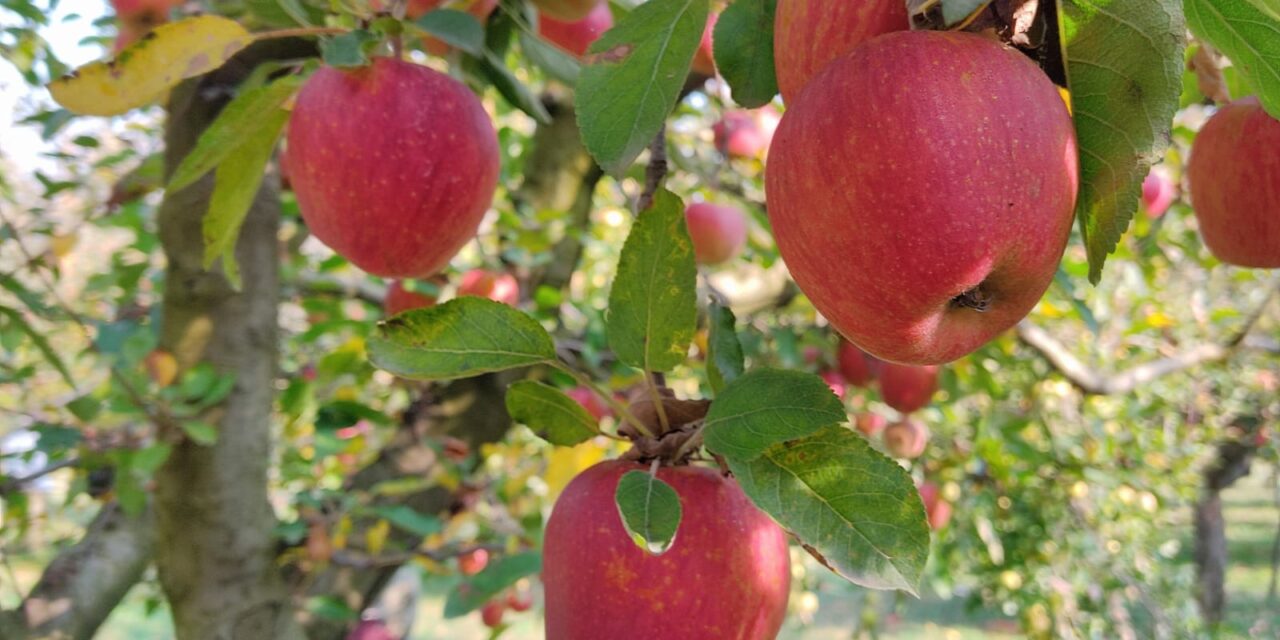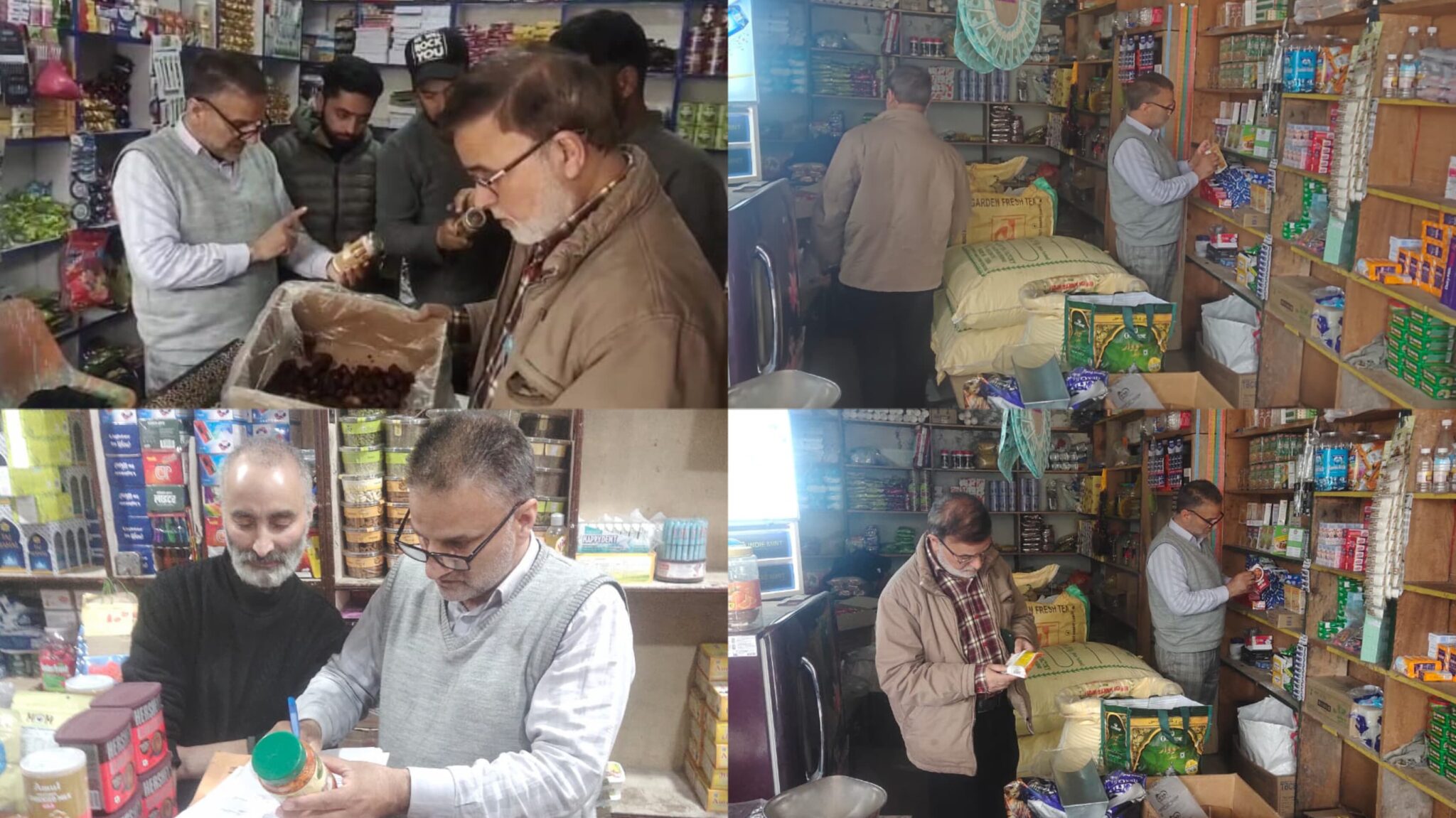![]()
Prolonged dry weather raises alarming concerns among fruit, especially apple growers; president says unchanged weather may incur huge losses to industry, threaten livelihoods
Waris Fayaz
Srinagar, Jan 15: Amid the prevailing prolonged dry weather conditions across the Kashmir region, concerns mount high among the fruit growers, whose livelihoods are tied to the cycles of nature, as they fear that the lack of snow might affect fruit set and overall crop production.
The region, known for its pristine winter beauty, is facing an unusual challenge as a prolonged dry spell replaces the traditional snowy weather, even as the Kashmir weather department has predicted mostly dry conditions till January 23.
Speaking to the news agency—Kashmir News Observer, fruit growers expressed deep concerns over the unusual gear change of weather in the valley, saying winter chill and snow are essential for the health of their apple trees. With the unprecedented dryness, they fear potential damage to buds and a decline in overall production.
Mohammad Saleem Dar, a seasoned apple grower in north Kashmir’s Sopore – known as the Apple Town – shared his apprehensions about the fruit-setting process. He said the winter conditions play a crucial role in determining the quality and quantity of their apples. “The absence of snow at this stage is concerning and we are closely monitoring the situation,” he said.
Another grower, Rasool Hassan Malik of the Langate area of north Kashmir’s Handwara said the dryness not only affects the apples but also brings an unexpected challenge – an invasion of mice. “They (mice) find refuge in the parched soil, damaging roots and wreaking havoc in the orchards,” he said.
“A day ago, I found these invaders — something we never prepared for, damaging the trees. We’re not just fighting against the dry weather, but in a battle to protect the very roots of our orchards,” Malik added.
Amid moist eyes and muffled voice, Farooq Ahmed Dar, a fruit grower in north Kashmir’s Kupwara district said, “Our actions paint the path ahead! Despite high-tech tools, we face challenges. It’s our deeds that shape our journey. Let us humbly bow to Allah, acknowledging our responsibility to tread gently on the Earth,”
Dar, who has been associated with the business for the last three decades, said the Kashmir Valley has been witnessing challenges concerning the fruit industry for a couple of years, however, such a challenge is going to be the worst if it remains unchanged.
“I usually used to do business of around 30,000 apple boxes at Delhi, but since the past few years, there is a sharp decline. The challenges posed by the current situation only exacerbate our struggles,” he said.
Speaking to KNO, Kashmir Fruit Growers and Dealers Association President Fayaz Ahmed Mailk alias Kaka Ji said the absence of the customary snowy cloak is like a missing chapter in the valley’s agricultural story. “Witnessing the prolonged dry weather is deeply concerning for all of us, as the orchards are facing unprecedented challenges,” he said.
Malik, who heads Asia’s second largest fruit mandi, situated in Sopore said the snow is not just precipitation but a vital component of agricultural heritage. While the dryness raises legitimate worries, we harbour hope for the transformative power of snowy days ahead, he said.
“We are optimistic that nature, with its inherent wisdom, will gift us the much-needed snowfall. It is not just about protecting our harvest, but about preserving a way of life that has sustained us for generations,” the president said, adding that if there’s no change in the prevailing weather, the industry is going to hit badly with coherent losses.
The fruit industry is considered the backbone of Kashmir’s economy and has always played a pivotal role in sustaining livelihoods besides shaping the cultural identity of the region. However, the past few years have witnessed a decline in the fruit business, with the exacerbating current challenges by the prolonged dry spell casting a shadow on the orchards, and on Kashmir’s economic structure.
Mohammed Zeyaan Khan, a research scholar based in the Baramulla district shared his insights on the prolonged dry weather. He said, “The situation poses a significant threat to apple orchards and their production as the trees are highly dependent on well-defined chilling hours during winter which are essential for proper bud development, dormancy and subsequent production.”
This can lead to delayed or uneven bud break, reduced yields and the impact on fruit sizes, Khan said, adding that the dry spell elevates the risk of water stress, which impacts the overall health and vigour of the trees.
Khan suggested alternative measures like reviving snow-mimicking technologies which can provide the moisture and insulation vital for crop health, shifting towards drought-resistant crops, augmenting snow-pack strategically and ensuring a reliable water supply for agriculture during the critical growth stage.
The scholar added that the prevailing weather conditions are not merely an environmental concern, but a threat to the very soul of Kashmir’s agrarian identity.
“Climate change-induced alterations have disrupted the delicate relationship between snow and orchards, and demand a collective sense of attention and action,” he said, adding, “Commitment to sustainable practices can be the guiding force to preserve these iconic landscapes for generations to come”—(KNO)

























